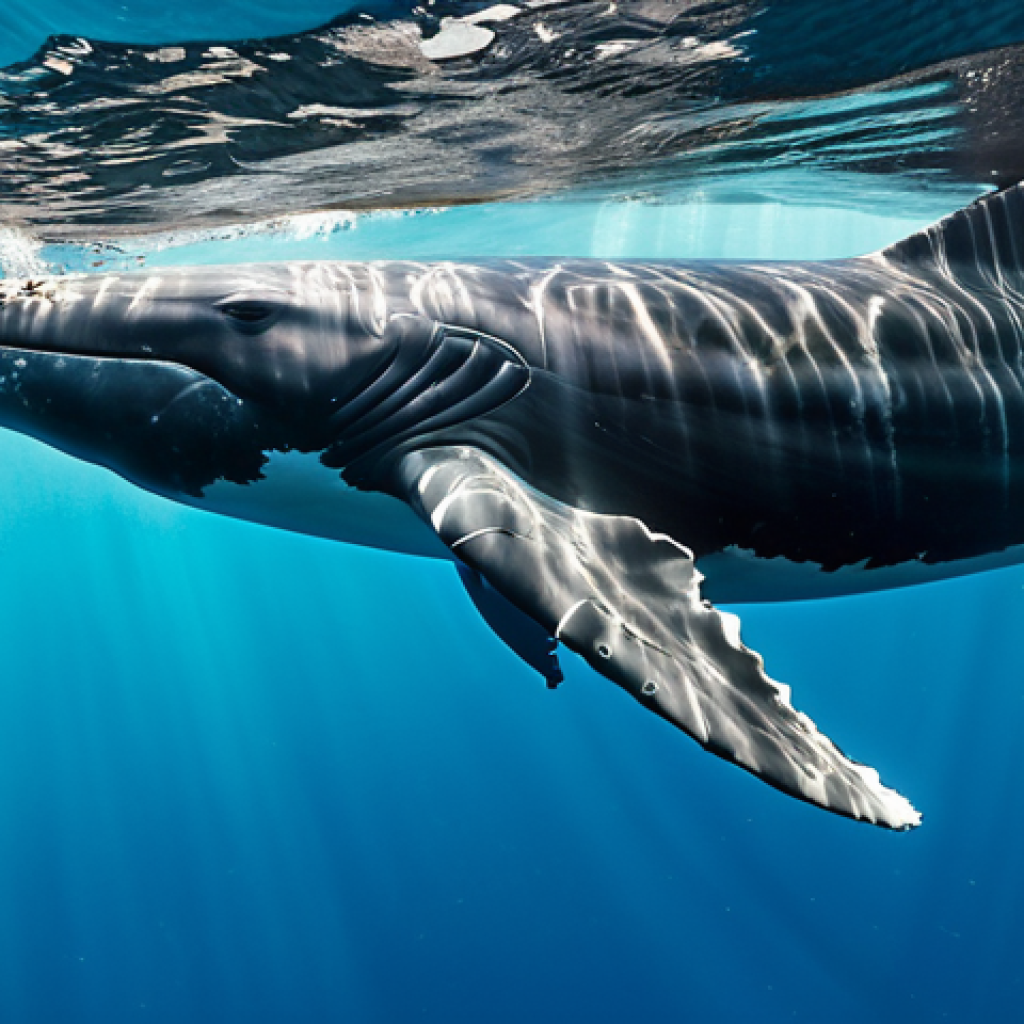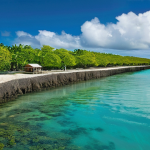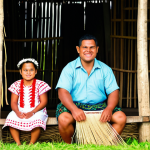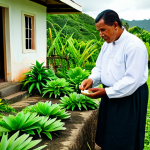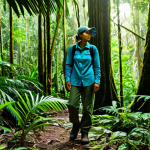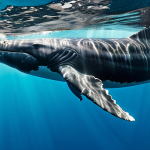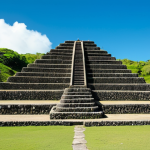Have you ever yearned for a place where time slows to a whisper, where the loudest sound is the gentle lapping of waves, and the clearest sight is an unending turquoise horizon?
That’s exactly how I felt when I first dreamt of Tonga, and let me tell you, the reality far surpassed any picture-perfect postcard. It’s more than just a destination; it’s an immersive escape into a world untouched by the frantic pace of modern life, a true haven where the ocean feels like a personal embrace.
From the pristine, powdery sands of Fafa Island to the dramatic, rugged coastlines of ‘Eua, Tonga’s beaches are incredibly diverse, offering something truly unique for every kind of traveler.
What really struck me, beyond the sheer beauty, was the palpable sense of authenticity and community. I’ve noticed a growing global trend towards sustainable travel, and Tonga, with its deep reverence for nature and local traditions, is perfectly positioned at the forefront.
They aren’t just selling a vacation; they’re inviting you to be part of a respectful, responsible exploration. Experts are increasingly highlighting the importance of supporting local economies in small island nations, and here, every meal at a family-run eatery or souvenir bought from a local artisan directly contributes to preserving their way of life.
Furthermore, as climate change impacts become more apparent globally, the future of such delicate ecosystems often depends on conscious tourism. Tonga is already adapting, with initiatives focused on marine conservation and protecting their stunning coral reefs, ensuring these paradisiacal scenes aren’t just fleeting moments but endure for generations.
Let’s dive right in and discover what makes Tonga an unparalleled beach destination.
Unveiling Tonga’s Aquatic Paradises: More Than Just Sand and Sea
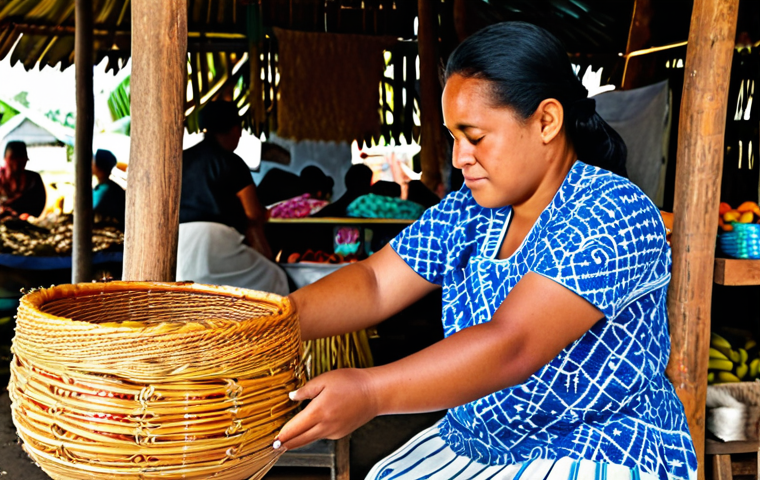
Stepping onto the shores of Tonga for the first time was like walking into a dream I never knew I had. I’d seen countless photos, read endless travel guides, but nothing, absolutely nothing, prepared me for the visceral, soul-stirring beauty of these islands. It’s not just the crystalline waters or the powdery white sand, which are, without question, breathtaking. It’s the way the sun warms your skin as a gentle breeze whispers through the coconut palms, the distant melody of a local song drifting from a village, and the feeling of absolute peace that washes over you. I remember standing on Fafa Island, the water so clear I could see my toes wiggling in the fine sand twenty feet out, and thinking, “This is what true escape feels like.” The sheer diversity here is astounding; from the vibrant coral gardens teeming with life, inviting you to snorkel for hours, to the dramatic volcanic cliffs of ‘Eua that plunge into the deep blue, offering a different kind of wild beauty. Every beach tells a unique story, each cove holds a secret, and the sense of genuine hospitality from the Tongan people makes every interaction feel like a warm embrace. It’s not just a place to visit; it’s a feeling to experience, a memory to cherish, and for me, it has truly redefined what a beach holiday can be. The air itself feels different, cleaner, infused with the scent of salt and tropical flowers, urging you to slow down and truly absorb the moment.
1. Discovering the Enchantment of Island Hopping
The real magic of Tonga unfolds as you venture beyond a single island. I quickly learned that each island group offers its own distinct flavor, a unique personality that beckons exploration. My personal journey began in Tongatapu, the main island, which served as a wonderful introduction with its accessible beaches and cultural sites. But it was when I hopped on a small local ferry to the Vava’u Group that the true adventure began. Vava’u is a yachtie’s paradise, a maze of sheltered anchorages, hidden coves, and breathtaking limestone cliffs that seem to erupt from the ocean. Imagine spending your days sailing from one deserted island to another, dropping anchor in a turquoise lagoon, and having the entire beach to yourself. I vividly recall one afternoon, swimming ashore to a tiny islet, not a soul in sight, and feeling like the first person to ever discover its pristine sands. It’s an unparalleled sense of freedom and discovery that you rarely find in more commercialized destinations. The Ha’apai Group, on the other hand, offered a different kind of serenity. It’s much quieter, less developed, and incredibly laid-back, perfect if you’re seeking ultimate tranquility. Here, time truly seems to stand still, and the rhythm of life is dictated by the tides. I remember long, quiet walks on empty beaches, the only footprints being my own, and the vastness of the ocean stretching out before me, an endless canvas of blues and greens. This kind of unhurried exploration allows for deeper connection, not just with nature, but with the quiet, reflective parts of yourself.
2. Where Ocean Encounters Transform Your Perspective
If there’s one thing that Tonga is globally renowned for, it’s the opportunity to swim with humpback whales. This isn’t just a bucket-list item; it’s a profoundly spiritual and humbling experience that will forever change your relationship with the ocean and its magnificent creatures. From July to October, these gentle giants migrate to Tonga’s warm, protected waters to calve and mate, offering an ethical, regulated chance to encounter them in their natural habitat. I’ll never forget the first time I slipped into the water, heart pounding with a mix of anticipation and awe, and saw a mother humpback and her calf gracefully gliding beneath me. The sheer scale of them, the gentle intelligence in their eyes, and the quiet power of their movements were almost overwhelming. It wasn’t just a visual spectacle; I could feel the vibrations of their calls through the water, a deep, resonant hum that seemed to vibrate in my very bones. It was a moment of pure, unadulterated connection, a vivid reminder of the incredible biodiversity our planet holds. Beyond the whales, Tonga’s coral reefs are vibrant underwater cities, teeming with kaleidoscopic fish, curious sea turtles, and intricate coral formations that deserve hours of exploration. Snorkeling or diving here feels like entering another dimension, a silent, colorful world where every glance reveals something new and wonderful. The clarity of the water is phenomenal, offering unparalleled visibility, which truly enhances the experience. I spent countless hours simply floating, mesmerized by the intricate dance of marine life around me, feeling utterly immersed in this magical underwater realm.
Embracing the Authentic Tongan Way of Life
My journey through Tonga wasn’t just about the stunning beaches and incredible marine life; it was equally about the warmth, resilience, and deep-rooted culture of the Tongan people. From the moment I arrived, I was struck by their genuine hospitality and the strong sense of community that permeates every aspect of daily life. It’s a stark contrast to the often-impersonal interactions you find in many major tourist destinations. Here, a simple walk through a village might lead to an invitation for a cup of kava, or a friendly chat with a local artisan about their craft. I remember being invited to a Sunday feast, a ‘umu, where food cooked in an underground oven was shared amongst family and friends, and the laughter and stories flowed as freely as the ocean breeze. It wasn’t a performance for tourists; it was real life, unfolding before my eyes, and I felt incredibly privileged to be a part of it, even if just for an afternoon. This commitment to their traditions and the preservation of their unique identity is something truly special. They live in harmony with their environment, deeply respecting the land and sea that sustain them, a lesson I believe we could all benefit from learning. The pride they take in their heritage is evident in their traditional dances, their intricate handicrafts, and the way they speak of their history. It’s a culture that’s both vibrant and deeply respectful, offering a profound sense of connection for anyone willing to open their heart and truly engage.
1. Savoring the Flavors of the Islands
One of the most delightful ways to connect with Tongan culture is through its food. The cuisine is wonderfully fresh, relying heavily on the abundance of seafood and tropical produce. Every meal felt like a celebration of the island’s bounty. My taste buds were constantly delighted by dishes like ‘ota ika, a refreshing raw fish salad marinated in coconut cream and lime, which became an instant favorite. I’ve tried ceviche in many places, but the Tongan version, with its specific balance of flavors and incredible freshness, truly stood out. Then there’s lu pulu, a traditional dish of corned beef wrapped in taro leaves and cooked in coconut milk, often slow-cooked in an underground ‘umu. The richness and depth of flavor in this dish were simply incredible, a testament to the slow, traditional cooking methods still widely practiced. I also discovered a newfound appreciation for breadfruit, often roasted and served as a staple, its starchy texture and subtly sweet flavor pairing perfectly with savory dishes. And let’s not forget the tropical fruits – mangoes, papayas, and bananas, all ripened on the tree and bursting with incredible sweetness. Eating locally sourced food not only offers a delicious culinary adventure but also directly supports the local farmers and fishermen, contributing to the sustainable ecosystem of the islands. Dining here isn’t just about satisfying hunger; it’s an immersive cultural experience, a way to taste the very essence of Tonga.
2. Handcrafted Treasures and Local Markets
Exploring the local markets and small artisan shops was another highlight of my Tongan adventure. It’s where you truly see the craftsmanship and artistic spirit of the islanders. I found beautifully woven baskets made from pandanus leaves, intricate carvings from local wood, and vibrant tapa cloths, each telling a story through its patterns and designs. These aren’t mass-produced souvenirs; they are pieces of art, often made by hand within the family unit, passed down through generations. I spent a fascinating afternoon watching women meticulously weave and paint tapa cloth, feeling a deep respect for the time, skill, and cultural significance embedded in each piece. It’s a living tradition, not just a commodity. When you purchase something here, you’re not just buying an object; you’re investing in a piece of Tongan heritage and directly supporting the local community. I made sure to buy several small items, knowing that each purchase helped a family and preserved a traditional craft. This direct interaction with the artisans, hearing their stories and learning about the meaning behind their creations, made the shopping experience so much more meaningful. It’s a conscious choice to support their way of life, and it feels incredibly rewarding to know your visit makes a tangible, positive impact.
Adventures Beyond the Beach: Exploring Tonga’s Hidden Gems
While Tonga’s beaches are undeniably the star attraction, venturing slightly off the sand reveals a wealth of other incredible experiences that showcase the islands’ diverse landscapes and unique geological features. I found that dedicating a day or two to explore these lesser-known spots provided a wonderfully balanced perspective, allowing me to appreciate the rugged beauty and ancient history that lies beyond the immediate coastline. It’s these moments of discovery, stumbling upon something unexpected, that truly enrich a travel experience and embed themselves in your memory. I remember renting a scooter on Tongatapu and just driving, with no real destination in mind, only to discover hidden blowholes, ancient archaeological sites, and charming small villages nestled amidst lush greenery. It felt incredibly liberating to explore at my own pace, allowing curiosity to guide my path. These adventures not only offer a change of scenery but also deepen your understanding of Tonga’s geological and cultural narrative, making your trip feel far more comprehensive and rewarding. It’s easy to get caught up in the allure of the water, but I highly recommend looking inland as well; you’ll be pleasantly surprised by what you find.
1. Marveling at Nature’s Sculptures: An Overview of Tonga’s Natural Wonders
Tonga is blessed with natural formations that are nothing short of spectacular. On Tongatapu, the Houma Blowholes are a must-see. These natural ocean geysers, created by waves crashing into volcanic rock formations, send spectacular plumes of water high into the air. It’s an exhilarating sight, especially on a windy day, and the raw power of the ocean on display is truly humbling. I could have watched them for hours, mesmerized by the rhythmic roar and spray. Then there’s the breathtaking ‘Anahulu Cave, a vast limestone cavern filled with stalactites and stalagmites, and even a freshwater swimming grotto. Exploring its cool, damp interior felt like stepping into another world, a silent, ancient space that offered a refreshing break from the tropical sun. The shimmering pools inside, illuminated by small lights, were incredibly inviting for a dip. The guides, usually local villagers, share fascinating stories and legends associated with the cave, adding a rich cultural layer to the geological wonder. Beyond these, the Ha’amonga ‘a Maui, often referred to as the ‘Stonehenge of the Pacific,’ is an ancient coral archway steeped in legend and mystery. Standing before this massive trilithon, dating back to the 13th century, you can’t help but feel a profound connection to Tonga’s ancient past and the sophisticated civilization that once thrived here. Each of these sites offers a unique window into the island’s natural history and the powerful forces that shaped it.
2. Immersing in Local Culture Beyond the Shore
Beyond the markets, Tonga’s cultural heartbeat truly resonates in its villages and communal gatherings. One of my most cherished memories was attending a local church service on a Sunday. Christianity is deeply ingrained in Tongan society, and Sunday is a sacred day, observed with reverence and community spirit. The singing was absolutely breathtaking – powerful, harmonious, and filled with an incredible sense of devotion. Even if you’re not religious, the sheer beauty of the a cappella hymns and the palpable sense of community are profoundly moving. It’s an experience that transcends language barriers and offers a genuine glimpse into the heart of Tongan life. I found myself completely captivated by the collective joy and devotion. Another aspect of local life that struck me was the prevalence of traditional farming and fishing practices. Visiting a vanilla plantation or seeing how taro is grown provides a deeper appreciation for the sustainable way of life that many Tongans still maintain. These interactions offer far more than just sightseeing; they provide an authentic understanding of the islanders’ daily routines, their connection to the land, and the traditions that have sustained them for centuries. It’s a wonderful way to move beyond the typical tourist facade and connect with the genuine spirit of the islands.
Planning Your Perfect Tongan Beach Escape
Embarking on a journey to Tonga requires a bit of thoughtful planning, but believe me, every bit of effort is immensely rewarded once you set foot on its pristine shores. It’s not a destination for those seeking sprawling resorts and bustling nightlife; instead, it promises an authentic, laid-back experience that prioritizes natural beauty and cultural immersion. Deciding when to go, where to stay, and how to get around can significantly enhance your trip, ensuring you make the most of this extraordinary Pacific paradise. I spent a lot of time researching before my trip, cross-referencing information from various sources and chatting with people who had already been. This groundwork paid off immensely, allowing me to arrive feeling prepared and excited, rather than overwhelmed. Understanding the seasonal nuances and transportation logistics is key to unlocking the full potential of your Tongan adventure. Remember, this is a place where things move at a different pace, so embracing flexibility and a relaxed attitude will serve you well. It’s about letting the island’s rhythm guide you, rather than sticking to a rigid itinerary. This initial preparation allows you to truly relax and soak in the unique atmosphere once you arrive.
1. Best Time to Visit and Key Considerations
The best time to visit Tonga for beach activities and whale watching is during its dry season, roughly from May to October. During these months, the weather is consistently warm and sunny, with lower humidity and less chance of rain, making it ideal for exploring the beaches, snorkeling, and diving. Importantly, this period also coincides with the humpback whale migration (July to October), which is a major draw for many visitors. The “off-peak” wet season, from November to April, brings higher temperatures, humidity, and more frequent rainfall, though showers are often brief. While you might find better deals on accommodation during this time, some smaller operators or activities might have reduced availability. When planning, consider local holidays and festivals, which can offer a fascinating glimpse into Tongan culture but might also mean some businesses are closed or transport is busier. For example, Sundays are widely observed as a day of rest, with many shops and services closed, and strict rules around activities. It’s also crucial to book your whale swimming tours well in advance, especially during peak season, as licensed operators have limited spots to ensure ethical and sustainable encounters. Finally, pack light, breathable clothing, plenty of reef-safe sunscreen, and insect repellent – tropical climates are beautiful but come with their own considerations! A good quality rash guard is also invaluable for protecting your skin while snorkeling for extended periods.
2. Navigating the Islands: Transportation and Accommodation
Getting around Tonga involves a mix of options, each offering a different experience. International flights typically arrive at Fua’amotu International Airport (TBU) on Tongatapu. From there, domestic flights connect to the Vava’u and Ha’apai groups, which are often the main destinations for beach holidays and marine activities. These domestic flights are generally reliable but can be subject to delays, so it’s wise to build in some buffer time if you have tight connections. For inter-island travel within a group, especially in Vava’u, boat taxis and charter boats are common, allowing you to access secluded beaches and snorkeling spots. On the main islands, taxis are readily available, and renting a car or scooter offers the freedom to explore at your own pace. I particularly enjoyed the freedom of a scooter for shorter distances. Accommodation options range from charming guesthouses and family-run bungalows to boutique resorts. There aren’t many large, chain hotels, which contributes to Tonga’s authentic charm. Many of the best beachside accommodations are on smaller outer islands, offering a true escape. Booking in advance, especially for high season, is highly recommended, as options can be limited. Consider staying at eco-friendly lodges that prioritize sustainability and support local communities, as this aligns perfectly with the ethos of Tongan tourism. Always inquire about transfers from the airport or main dock, as some accommodations are quite remote and require pre-arranged transport.
| Island Group | Key Attraction | Best For | Typical Activity Costs (TOP) |
|---|---|---|---|
| Tongatapu | Houma Blowholes, ‘Anahulu Cave, Ha’amonga ‘a Maui | Cultural exploration, accessible beaches, natural wonders | Taxis (short trips): 10-25 Cave Entry: 15-20 Car Rental (daily): 80-150 |
| Vava’u | Humpback Whale Swimming, Yachting, Kayaking through caves | Adventure, marine life encounters, island hopping | Whale Swim Tour: 350-500 Kayak Rental (daily): 50-80 Boat Charters: Variable |
| Ha’apai | Secluded beaches, untouched reefs, tranquil atmosphere | Relaxation, snorkeling, diving, remote escapes | Snorkel Gear Rental: 15-25 Boat Trips to Outer Islands: 80-150 Diving Excursion: 200-350 |
| ‘Eua | Hiking, rainforests, dramatic cliffs, Tongan wild horses | Nature trekking, off-the-beaten-path adventure | National Park Entry: 10-20 Guided Hike: 50-100 Horse Riding: 40-70 |
Sustainable Travel: Protecting Tonga’s Pristine Future
Visiting a destination as pristine and naturally abundant as Tonga comes with a profound responsibility: to ensure that our presence contributes positively to its preservation, rather than detracting from it. For me, sustainable travel isn’t just a buzzword; it’s a deeply personal commitment to leaving a place better than I found it, or at the very least, ensuring I cause no harm. Tonga’s delicate marine ecosystems, particularly its vibrant coral reefs and the migratory paths of its humpback whales, are incredibly sensitive to human impact. The local communities also rely heavily on these natural resources, and their traditional way of life is intrinsically linked to the health of their environment. Embracing sustainable practices here isn’t just about being a good tourist; it’s about acknowledging the interconnectedness of our actions with the well-being of the islands and their people. It’s a proactive choice to protect the very magic that draws us here in the first place, ensuring that future generations can also experience the awe-inspiring beauty of this Pacific gem. I often reflect on how my travel choices impact the places I visit, and Tonga truly emphasizes the importance of mindful tourism. It compels you to be a more conscious traveler, which I believe is a powerful and necessary shift for the future of global tourism.
1. Making a Positive Impact Through Conscious Choices
Every choice you make as a traveler in Tonga has an impact, and by being mindful, you can ensure it’s a positive one. Firstly, always choose licensed and reputable tour operators, especially for sensitive activities like whale swimming. These operators adhere to strict guidelines designed to protect the whales and their habitat, prioritizing the animals’ well-being over commercial gain. I made sure to research my whale swimming tour operator thoroughly, ensuring they were certified and followed ethical practices. Secondly, support local businesses directly. This means eating at family-run restaurants, buying handicrafts from local artisans at markets, and staying at locally owned accommodations. This ensures that your tourism dollars directly benefit the Tongan economy and empower local communities, rather than being siphoned off by larger, international corporations. I found that engaging with local vendors often led to more authentic experiences and meaningful conversations anyway. Thirdly, minimize your environmental footprint. This includes using reef-safe sunscreen (free of oxybenzone and octinoxate), carrying a reusable water bottle to reduce plastic waste, disposing of rubbish properly, and avoiding touching coral reefs or disturbing marine life while snorkeling or diving. Simple actions like these, collectively, can make a significant difference. Lastly, respect local customs and traditions. Dress modestly when visiting villages or religious sites, especially on Sundays, and always ask for permission before taking photographs of people. This shows respect for the Tongan way of life and fosters positive interactions.
2. Participating in Conservation Efforts and Community Engagement
Beyond individual choices, there are opportunities to actively contribute to Tonga’s conservation and community development. Many local resorts and tour operators are involved in marine conservation projects, such as coral restoration initiatives or plastic clean-up efforts. Inquire if there are opportunities to participate in a beach clean-up during your stay, or if a portion of your tour fee goes towards local conservation. Some dive centers also offer opportunities to learn about and contribute to reef monitoring programs. Furthermore, consider visiting community projects or local schools if there are organized opportunities. While direct financial donations might not always be appropriate without proper vetting, understanding the challenges and initiatives of local communities can foster a deeper appreciation. I learned about several local initiatives focused on protecting the giant clam population, which is crucial for reef health, and it truly enhanced my understanding of the delicate balance of the ecosystem. The Tongan people are incredibly resilient and resourceful, but they also face unique challenges as a small island developing state. By being an informed and responsible visitor, you become an ally in their efforts to preserve their natural heritage and improve their quality of life. Your presence, when coupled with conscious choices, can be a powerful force for good, ensuring that Tonga remains a true paradise for generations to come. It truly elevates a vacation from mere leisure to meaningful contribution.
Closing Thoughts
As I reflect on my time in Tonga, it’s clear this wasn’t just another stamp in my passport; it was an immersive journey that touched my soul. The memories of crystalline waters and the incredible encounters with humpback whales are profound, but what truly lingers is the warmth of the Tongan people and the gentle rhythm of island life. This is a destination that demands presence, encouraging you to slow down, connect deeply with nature, and embrace a culture steeped in tradition and genuine hospitality. For anyone yearning for an escape that goes beyond the superficial, offering rich experiences and a true sense of discovery, Tonga awaits. It’s a place that reminds you of the simple, profound beauty of our world and the incredible generosity of its inhabitants.
Useful Information
1. Visa & Entry: Most nationalities receive a visa on arrival for stays up to 30 days. Always check the latest requirements with your country’s foreign office or the Tongan embassy before you travel, as regulations can change.
2. Currency & Payments: The local currency is the Tongan Pa’anga (TOP). While some larger resorts or tour operators may accept credit cards, cash is king, especially in local markets, smaller villages, and for many activities. ATMs are available in major towns like Nuku’alofa but can be scarce elsewhere, so plan to carry enough cash, particularly if venturing to outer islands.
3. Connectivity: Wi-Fi is available at most accommodations and some cafes in tourist hubs, but it can be slow and unreliable compared to Western standards. Purchasing a local SIM card (e.g., from Digicel or TCC) upon arrival is highly recommended for better connectivity and data access, especially if you plan to rely on maps or stay in touch.
4. Health & Safety: Tonga is generally safe, but basic precautions apply. Mosquito repellent is essential to ward off bites. Always use reef-safe sunscreen to protect both your skin and the delicate coral ecosystems. Drink bottled or filtered water, and be mindful of your surroundings, especially when exploring remote areas. Medical facilities are limited outside of Nuku’alofa, so comprehensive travel insurance is a must.
5. Cultural Etiquette: Tonga is a deeply religious and conservative nation. Sundays are observed as a sacred day of rest, with most businesses closed and activities restricted. Dress modestly, especially when visiting villages, churches, or government buildings. Always ask permission before taking photos of people, and generally observe and respect local customs to ensure a harmonious experience.
Key Takeaways
Tonga offers an unparalleled escape into pristine natural beauty and authentic Polynesian culture, far from mass tourism.
Ethical whale swimming (July-October) is a transformative highlight, but ensure you book with licensed, responsible operators.
Island hopping unveils diverse experiences, from yachting in Vava’u to tranquil relaxation in Ha’apai.
Embrace local life by savoring traditional cuisine, supporting artisan crafts, and respecting Tongan customs, especially on Sundays.
Sustainable travel practices are paramount to preserving Tonga’s delicate ecosystems and supporting its resilient communities for future generations.
Frequently Asked Questions (FAQ) 📖
Q: Okay, so when’s the absolute best time to hit those Tongan beaches? Like, when did you go, and what was it really like?
A: Oh, that’s a brilliant question, and one I get asked a lot! Honestly, for that quintessential, idyllic beach experience in Tonga – you know, endless sunshine, calm waters, and perfect temperatures for swimming or just lazing around – I’d hands down recommend going between May and October.
That’s their dry season, and it’s just pure bliss. When I was there in late July, it felt like every single day was painted with a perfect blue sky. The humidity was low, the ocean was this incredible, inviting warm bath, and the breezes were just gentle whispers, never harsh.
It’s also prime whale-watching season then, which, for me, was just mind-blowingly spiritual – imagine seeing those gentle giants right from the shore or even swimming with them if you choose a responsible tour operator!
The only ‘downside,’ if you can even call it that, is that it’s also peak tourist season, but honestly, Tonga never feels ‘crowded’ like some other tropical hotspots.
It’s more like you’re sharing a beautiful secret with a select few. The locals are always so welcoming, offering fresh coconuts and a genuine smile, regardless of the season, but there’s a definite buzz of life during those dryer months.
Just a heads up, Sundays are very much for church and family – things slow right down, which is actually part of its charm and something I truly came to appreciate for its peacefulness.
Q: Beyond just the usual ‘lie on the beach and tan’ thing, what truly unique beach experiences can Tonga offer that you just can’t get anywhere else? I’m looking for something more than just pretty sand.
A: Oh, you’re speaking my language now! Because honestly, Tonga’s beaches are more than just a backdrop for sunbathing; they’re a gateway to some truly unforgettable, often profound, experiences.
For me, the absolute pinnacle was the whale swimming. Imagine floating in the crystal-clear ocean, and suddenly, a humpback whale, majestic beyond belief, glides by just meters away.
It’s not a zoo; it’s their natural habitat, and the respect the local operators have for these creatures is just palpable. It’s humbling, beautiful, and something that truly sticks with you – you feel the ocean’s power and tenderness all at once.
Then there’s the sheer thrill of exploring those hidden, untouched coves. I remember one afternoon, we just rented a small boat and motored around Vava’u, pulling up to these tiny, deserted patches of sand that felt like our own private paradise for a few hours.
No vendors, no crowds, just the sound of the waves and the rustle of palms. And let’s not forget the underwater world! Snorkeling or diving here isn’t just about pretty fish; it’s about vibrant, thriving coral reefs, often teeming with life because of Tonga’s strong conservation efforts.
I mean, the colors are just unreal, like a living kaleidoscope! It’s a reminder of how vital these ecosystems are, and seeing them so healthy just fills you with hope.
These aren’t just ‘activities’; they’re deep connections to nature and moments of pure wonder.
Q: Given what you said about Tonga’s focus on sustainability and local culture, how can visitors truly be respectful and contribute positively when they’re there?
A: ny personal tips or observations? A3: Absolutely, and this is so crucial, you know? It’s not just about what you do in Tonga, but how you do it.
From what I saw and felt, the Tongan people embody ‘ofa’ – a deep sense of love, compassion, and hospitality. To truly connect and contribute positively, embracing that spirit is key.
My biggest tip? Engage with the locals directly. Instead of eating at the big hotel restaurants every night, seek out those smaller, family-run eateries.
The food is incredible, fresh, and every Pa’anga you spend goes straight into the hands of a family supporting their livelihood. I still dream about the freshly caught fish cooked in a umu (earth oven) at a tiny place near my guesthouse – it was unforgettable and felt so much more authentic than any resort meal.
Also, when buying souvenirs, look for locally made crafts. You’ll often find artisans selling beautiful woven mats, intricate wood carvings, or traditional Tapa cloth.
Buying directly from them means you’re supporting their skills and cultural heritage, not some mass-produced import. And please, be mindful of their customs!
Sundays are sacred; it’s a day for church, family, and rest. You’ll notice things really slow down. It’s a chance to truly unplug and observe their way of life, not demand activities.
Finally, always be respectful of the environment. Don’t touch the coral, don’t litter, and choose eco-certified tour operators, especially for whale swimming.
It’s about leaving only footprints and taking only memories, but also leaving behind a positive impact on the community. It felt incredibly rewarding to know that my visit was contributing to their well-being and the preservation of their beautiful home.
📚 References
Wikipedia Encyclopedia
구글 검색 결과
구글 검색 결과
구글 검색 결과
구글 검색 결과
구글 검색 결과
